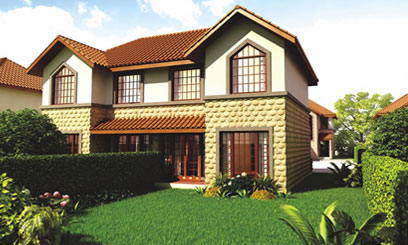 NAIROBI, Kenya, Mar 31 –As African governments mull ways of addressing the growing housing demand in their respective countries that are grappling with rapid urbanization and equally rapid population growth, experts are suggesting a change of approach to the current housing delivery methods.
NAIROBI, Kenya, Mar 31 –As African governments mull ways of addressing the growing housing demand in their respective countries that are grappling with rapid urbanization and equally rapid population growth, experts are suggesting a change of approach to the current housing delivery methods.
Wagane Diouf Chief Executive Officer of pan African Real Estate Development Company Urbanis Africa says when it comes to providing housing, governments need to look at the middle market.
“When we talk about low income housing we try to build houses for Sh300,000. No one spends time building between Sh1.5 million and Sh2 million because there is demand in that market. We are always trying to solve the problem for the richest and the poorest, and not the middle” he said.
Speaking at the African Real Estate and Housing Finance Academy conference on Friday, Diouf added that African governments should borrow a leaf from the Telco business model that successfully penetrated the African market by appealing to the informal sector.
“Telecom has taken a hold in Africa faster than in any other continent with features like pay as you go, low cost of SIM cards and until recently no formality to buy one. Also cheap handsets,” he said.
With 70 percent of the African population in the informal sector, Diouf said this model worked for the low-income bracket because they are looking for flexibility and freedom and operate primarily in cash.
It is estimated that there are 50 million low income Africans, 10 percent of which Diouf said have the capacity to purchase homes.
Often the assumption that because most of this group is un-banked and do not have collateral necessary to get formal financing, they lack the purchasing power necessary to be homeowners and are often sidelined.
Diouf emphasized the need for private sector to play a more involved role in developing housing infrastructure, an area he says African governments cannot address on their own, especially when only 30 percent of economic agents in most African countries pay taxes.
The way forward for real estate in Africa Diouf said is developing more mixed income estates which will allow governments to better manage urbanization patterns and inevitably deal with the slum menace.
“It’s a Robin Hood approach by advocating middle and low income mixed income estates, where you can take cross-subsidization. The margin you make on the middle will subsidizes the lower margin you would make on the low-income; making the low income entry price low. By doing that you can increase the stock at a low price,” he explained.
The National Social Security Fund is planning to build 30,000 housing units in a mixed residential development in Mavoko; partnering with international bodies for financing.
“We are engineering something that would have happened anyway. Anywhere you build a high or middle income estate next to it you’ll have a slum. We are building it intelligently with the proper infrastructure and management,” Diouf explained.
Diuof said ultimately creating a harmonious environment for the low and middle income residents to co-exist in, relies on the physical layout of the development that includes social areas, businesses, schools and hospitals.
Though the idea of mixed-income communities has been attempted in developed countries and in some successfully implemented, when it comes to Africa what should be considered is whether the quality of life for low-income residents is in fact being improved.
Factors such as dynamics of neighbor interactions, level of social ties and integration, amount and quality of services, and general lived experiences of the lowest income residents need to be taken into account to assure that it is alleviating poverty and not relocating it.


































